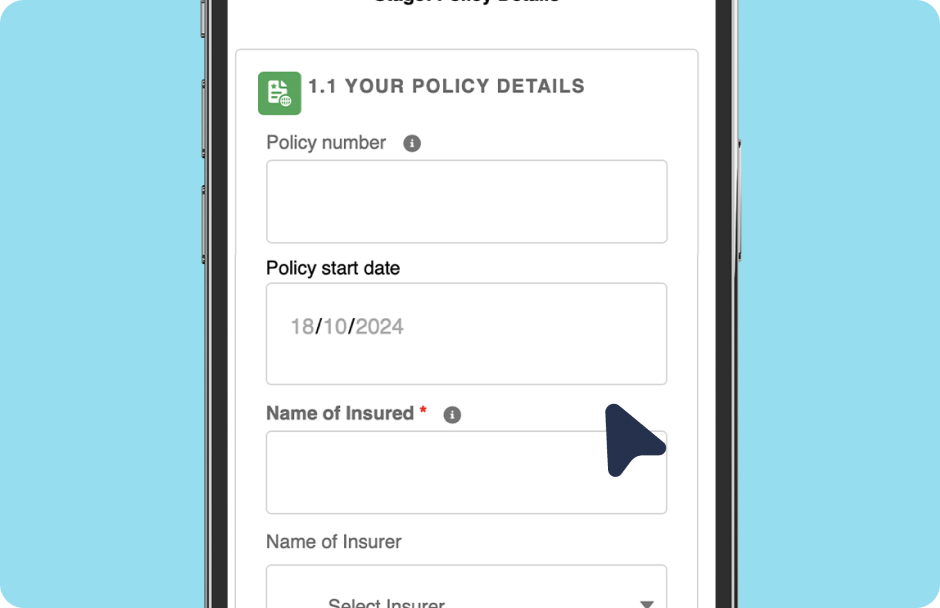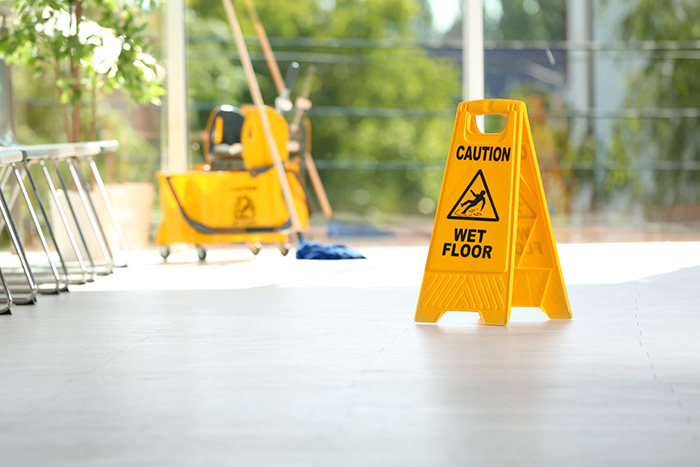Compare quotes from our trusted insurance partners:
On this page:
What is flooring installer insurance?
Flooring installer insurance – the many types of cover you might consider for your flooring installation business– helps protect you from the cost of everyday risks, like injuries, lost tools, and more.
Anything can happen when you’re installing flooring in clients’ homes and businesses. Injuries, accidental property damage, and stolen equipment are just a few reasons why flooring installers get business insurance to protect themselves, their business, and their clients.

Why do flooring installation contractors need insurance?
Flooring installers may need business insurance to meet contract obligations, or cover unexpected legal costs.
Enter a job site
Work as a contractor or subcontractor
Cover ongoing expenses during unplanned business shutdowns
Cover for your stock or supplies if they’re damaged, lost, or stolen due to insured events (like fire, storm, or theft)
Who needs flooring business insurance?
BizCover has insurance options for a variety of flooring installation businesses, including:
Timber Flooring Installation
Carpet Laying
Slate Flooring Installation
Timber Floor Sanding and Polishing
Stair Installation
Flooring Distribution
Let’s cover your small business on the go
Start a quote to see how much you can save and buy online in minutes.
What types of insurance do flooring businesses need?
We offer a range of policies designed to cover your business, tools, and stock. Build an insurance package that suits your needs and buy in minutes.
Popular cover types for flooring contractors:
Popular cover types for flooring contractors:
How much does flooring installers’ insurance cost?
The average cost of an insurance for flooring businesses is $74 per month with BizCover.
However, the cost of your policies will depend on a number of factors, such as the size of your flooring business or annual revenue, the activities covered by the policy, who is covered and their qualifications, and the amount of cover you want.

Factors influencing cost
Risks of the industry
Cover level amount
Annual turnover
Number of employees
Claims history
*Customer Average Monthly Payment Report is based on 1 July 2023 to 30 June 2024 and presented as a guide only. It may not reflect pricing for your particular business, as individual criteria will apply.
Get cover that works with the risks of your business
Select different cover amounts for each policy listed below.
This is the most you will be paid out if you need to make a claim.
Unsure how much to choose? Think about:
Underinsurance
We know it’s tempting to select a lower level of cover to reduce premiums, but this can leave businesses shocked and insufficiently covered when making a claim.
Ways underinsurance catches business owners out:
Inflation
With inflation, the cost of living and doing business increases. Remember to over yourself, your tools and assets for the rising costs of replacing or covering them, not what you paid for them – you may be surprised at the difference.
Not covering the full cost of your risks
If you select cover levels for less than the value you may be found liable – left out of pocket when it comes to claims time. It’s important to review your risks and determine how much you will need to cover any claim that may come your way.

Factors influencing cost
Risk of the industry
Cover level amount
Annual turnover
Number of employees
Claims history
*Customer Average Monthly Payment Report is based on 1 July 2023 to 30 June 2024 and presented as a guide only. It may not reflect pricing for your particular business, as individual criteria will apply.
Get cover that works with the risks of your business
Select different cover amounts for each policy listed below. This is the most you will be paid out if you need to make a claim.
Unsure how much to choose? Think about:
Statutory professional requirements
Cover required by contracts
Number of employees being covered
Your contract value
Worst case scenario claim size
Underinsurance
We know it’s tempting to select a lower level of cover to reduce premiums, but this can leave businesses shocked and insufficiently covered when making a claim.
Ways underinsurance catches business owners out:
Inflation
With inflation, the cost of living and doing business increases. Remember to over yourself, your tools and assets for the rising costs of replacing or covering them, not what you paid for them – you may be surprised at the difference.
Not covering the full cost of your risks
If you select cover levels for less than the value you may be found liable – left out of pocket when it comes to claims time. It’s important to review your risks and determine how much you will need to cover any claim that may come your way.
How It Works – Buying Online
5 easy steps to get instant cover online today

Select Profession
Pick Your Covers
Add Business Details
Compare Quotes
Get Covered Online
How To Make a Claim Online
We’ll assist you through the claims process & manage the claim directly with the insurer.

Let us know Fill out our
claims form and provide info
to support the claim
Receive extra support We
will assist you with your claim
Claim results We will notify
you of the claim outcome.



Award-Winning Tech & People
We’re not ones to blow our own trumpet, but we are pretty proud of our innovative insurance platform, outstanding team, and stellar workplace.
See How Much Others Have Saved By Purchasing a Policy Through BizCover
^ Savings made from January 2024 to April 2025. This information is provided as a guide only and may not reflect pricing for your particular business, as individual underwriting criteria will apply.
Frequently asked questions
Flooring installation contractors may be required to have Public Liability insurance to enter job sites or work as a subcontractor for another business. A Public Liability policy may also be necessary to lease commercial workshop or warehouse space for your business.
Public Liability insurance is designed to provide protection for you and your business in the event a customer, supplier or a member of the public brings a claim against you due to their being injured or sustaining property damage as a result of your negligent business activities.
Portable Equipment (or general property) insurance to cover specified items such as tools, business equipment or electronic items, or unspecified items of lower value. In addition, cover is available for public liability, tax audit, employment practices and statutory liability risks. Portable Equipment cover is an optional cover available through a Business Insurance Pack.
Business Insurance is an insurance package designed to provide cover for your business contents, stock, tools and commercial premises when an insured event occurs (such as fire, storm, theft or even accidental damage). A Business Insurance package can also cover glass and loss of revenue due to business interruption in specified circumstances.
Flooring contractors can customise their Business Insurance Packs to include cover that fits their needs, such as Portable Equipment, Contents, Business Interruption and more.
If you get injured at home or at work, Personal Accident and Illness insurance can provide cover should you become permanently disabled or pass away as a result of an accident. Cover can also include a weekly benefit for loss of income if you are unable to work as a result of an unexpected injury or illness (even if it occurs outside of your employment).
















Real-life customer reviews verified by Feefo